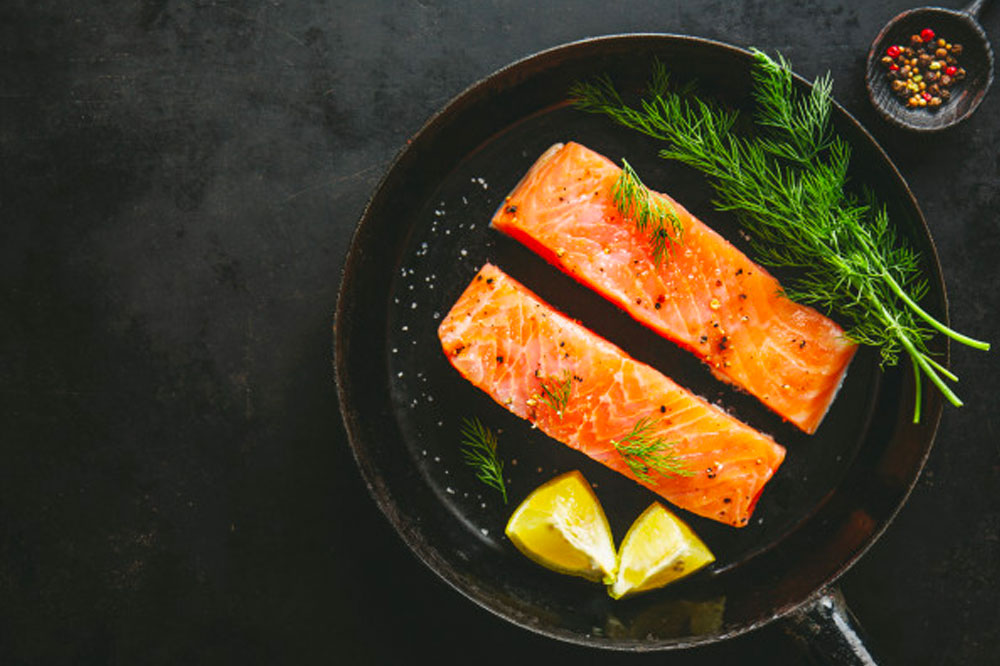
Dietary Tips to Help Manage Ulcerative Colitis
A chronic condition that causes inflammation in the large intestines (colon) and the rectum and causes sores (ulcers) in the inner lining of the large intestines is known as ulcerative colitis. It is an autoimmune disease that leads to inflammatory bowel disease. The cause of this condition is not known, but it is believed to be caused by several factors like an overactive immune system and genetics. Physical and emotional stress may trigger symptoms in ulcerative colitis, and people with this condition suffer from symptoms like the following:
- Fatigue
- Abdominal pain and cramps
- The urgency for a bowel movement
- Diarrhea
- Loss of appetite
- Weight loss
- Bleeding in the rectum
- Anemia or low red blood cell count
Dietary tips for managing ulcerative colitis
People with ulcerative colitis need to modify their diet to help alleviate the symptoms. There is no single meal plan or diet that would commonly suit everyone, so one must individually plan for themselves, depending on the symptoms and the severity of the condition. Here are some dietary tips and changes for managing ulcerative colitis:
- High-calorie diet
Most people who suffer from this condition develop signs of malnutrition and lose weight. To help prevent or manage this, a high-calorie diet is recommended. - Lactose-free diet
Lactose intolerance is a common issue faced by people with ulcerative colitis, and a lactose-free diet is helpful in such cases. - Low-fiber diet
Also known as a low-residue diet, this helps to reduce the frequency of abdominal cramps and bowel movements. It eases the pressure on the digestive system as fiber is difficult to digest, and this diet advises you to cut down your fiber intake. - Low-fat diet
Following a low-fat diet is advised during an ulcerative colitis flare. This is because the condition often interferes with fat absorption in the body, and eating fatty food would trigger a flare-up. - Low-sodium diet
This diet is used to help reduce water retention in patients who are undergoing corticosteroid therapy. - Gluten-free diet
People with ulcerative colitis would most often be sensitive to gluten, and this diet would benefit people with gluten intolerance. - Low-FODMAP diet
Fermentable-Oligo-Di-Monosaccharides and Polyols (FODMAPs) are types of sugars found in certain carbohydrates and sugar alcohols. Patients who are intolerant to FODMAPs are recommended this diet to help alleviate the symptoms.
Nutrition plays an important role in patients with ulcerative colitis. This condition causes diarrhea and bleeding, which would lead to dehydration, electrolyte imbalance, and eventually, loss of nutrients. In cases where the symptoms do not allow the patient to follow a nutritionally balanced diet, nutritional supplements are prescribed by doctors. A helpful dietary tip for people with ulcerative colitis is to eat smaller, more frequent meals rather than large ones as it is easier for digestion. Eating small meals helps increase nutrition absorption from the foods.
One can maintain a food journal to track trigger foods that cause flare-ups of ulcerative colitis. In this, one can note down the food and beverage they consume and how they feel afterward. Take note of any symptoms that arise and the foods that might have triggered or aggravated it. The diary would help one’s dietician to figure out whether they are getting enough nutrition and to determine the diet that suits them.


